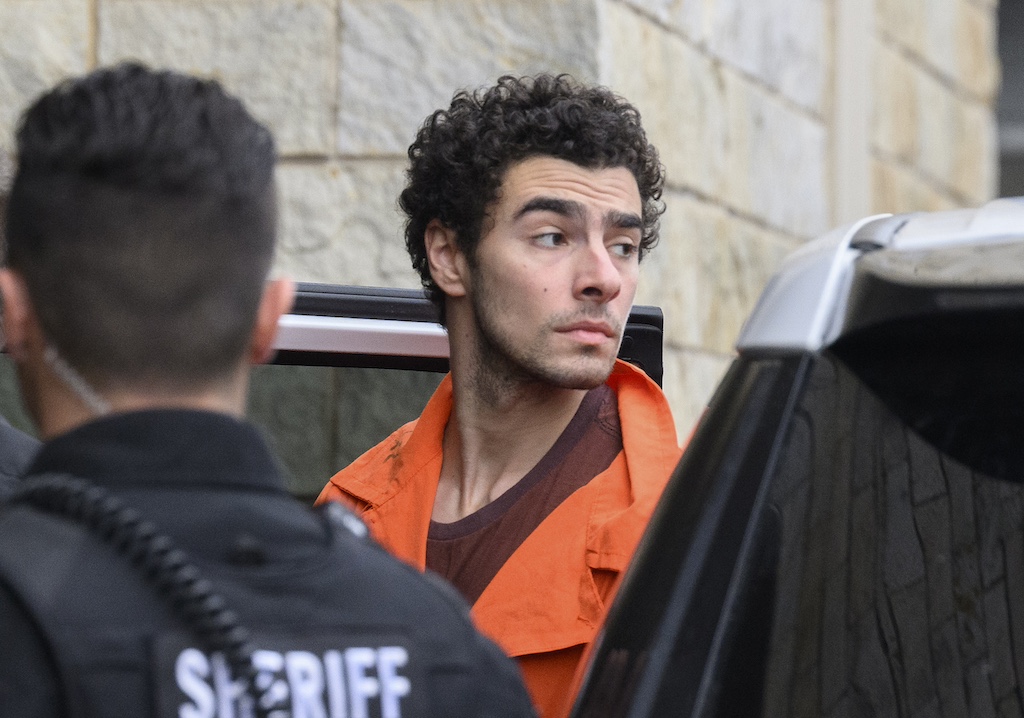
Reflections on Luigi Mangione and Redemptive Violence

“All too many atomized Americans have taken up arms and carried out shocking acts of violence over the past decades, usually without anything more than the desire to harm and kill for their own sake. Mangione might be a sign of something new: a political moderate with no movement behind him, no history of activism, and no strong ideology, seemingly radicalized by a failing system — and led to believe murder is the way to fix it.”
The above quote comes from a recent article in Jacobin about Luigi Mangione, the person accused of murdering UnitedHealthcare CEO Brian Thompson recently. The redemptively violent impulse exhibited by Mangione is completely understandable and all too familiar to me. I share with Mangione at least three things: an Italian last name, a deep sadness which often boils into anger over our suicidal and oppressive political economy, and the regrettable recognition of having committed a violent act followed by penalty of inprisonment. As I reflect on all of this, one thing is clear to me: the Mangione story holds quite a lesson for those with ears to hear it.
While in prison I read all the Thomas Merton books that I could find, as well as the Bible twice, cover to cover, which helped usher me on my way to what is becoming a lifelong love of studying religion, the arts, and the humanities. I also attended any religious service I could while in prison (including Jewish and Muslim services) just to escape boredom and pass the time—I mean my cellmate and I could only win so many games of spades in one day for crying out loud lol! During this time, there was one thing I began to realize while surrounded by my fellow prisoners (many of whom were in jail for minor offenses like bouncing checks and smoking/selling weed): the distinction between criminal and non-criminal is just as subjective and as slippery as the distinction between the deserving and undeserving poor. In fact, I finally understood what Dorothy Day meant when she says that the Gospel takes away our right forever to attempt to distinguish between the two.
It was in prison that my tough-guy, Italian gangster attitude and nonsensical Libertarian power fantasies—which took the form of a belief in the ability of violent, “heroic” efforts of individuals to finally bring peace by murdering all the murders—met their demise. Through studying the tradition of a religion founded on what Friedrich Engels calls “social murder” I came to understand how the lie that violence will bring peace (Pax Romana) is in direct contrast to the non-coercive and nonviolent Kin-dom of Heaven of which Jesus spoke.
As Spanish-Salvadoran theologian, Ignacio Ellacuria, teaches us: the point of Jesus’ resurrection and salvation is not merely personal salvation, but rather a call to actively participate in the ongoing “work of salvation” by working for justice and liberation for the oppressed, essentially continuing the mission of Jesus in the world by actively alleviating suffering and systemic injustices. This is done, however, not by murdering murderers but by taking seriously the social nature and precarity of human life while also, simultaneously, doing away with the atomized, liberal understanding of the bounded human self whose mind is encased in the skull and whose body stops at the skin. The type of nonviolence Jesus teaches requires nothing less than literally viewing all of life, human and non-human, to be as important and as precious as one’s own. If we do this then, perhaps, as Jesus has indicated, “The King will reply, ‘Truly I tell you, whatever you did for one of the least of these brothers and sisters of mine, you did for me.’”
God, in your mercy, here our prayer.
…
Shouts to The Magnificast for inspiring me and providing the Engels and Ellacuria connections here. Thank you!
0 Comments